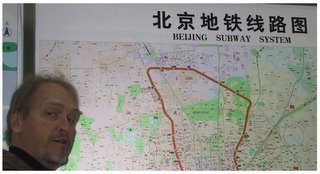Having seen more and more references to a role called "community manager" in recent months, I decided to find out what people in that role do. In doing so, I found out that I had been a community manager -- a very good community manager -- in different contexts for years.
Wikipedia refers to this role as the "online community manager," and the role is sometimes confused with that of the social media manager. Some have tried to clarify how these two roles are distinct, but UserVoice's Evan Hamilton is one of probably many community managers who find themselves performing the social media manager role in addition to others.
 Indeed, community managers often play a wide variety of roles, as revealed at a recent community manager breakfast hosted by Evan. Roles played by one or more of the community managers in attendance include:
Indeed, community managers often play a wide variety of roles, as revealed at a recent community manager breakfast hosted by Evan. Roles played by one or more of the community managers in attendance include:
- helping customers (i.e., the community members) have a great experience;
- trying to get customers to stay customers;
- finding product bugs;
- giving feedback to product managers;
- being a gatekeeper for all customer communications;
- figuring out the right kind of metrics to use to measure their own effectiveness;
- managing social media activity;
- driving the brand voice;
- advocating for users;
- organizing events/contests/...
Attendees reported that they work in businesses of a wide variety of sizes and find themselves positioned organizationally in a wide variety of departments, including marketing, engineering, product, customer service, and sales support. Views varied as to which department community managers should report to, but all thought it best that the role evolve to be a "horizontal, strategic role" touching all parts of the company and that it should eventually include a C-level role known, perhaps, as the Chief Happiness Officer.
 All these topics and many more were discussed by ~200 community managers nearly a week ago at the Community Leadership Summit (CLS) West 2012 held at eBay Town Hall in San Jose, CA. CLS West was an unconference with a packed agenda of 40 different sessions, and all attendees were enthusiastic participants.
All these topics and many more were discussed by ~200 community managers nearly a week ago at the Community Leadership Summit (CLS) West 2012 held at eBay Town Hall in San Jose, CA. CLS West was an unconference with a packed agenda of 40 different sessions, and all attendees were enthusiastic participants.
Why so much attention to the role of community manager? A John Hagel and John Seely Brown blog posting from earlier this week provides one answer:
"Building an effective virtual community is no simple task. Most importantly, it requires a deep understanding of the unmet needs of potential community members rather than simply approaching it as a marketing opportunity for the company. It is no wonder that so many have tried to create these communities and yet so few have succeeded."
However, what is most interesting to me about all this is the similarity of some of the community manager roles and challenges and aspirations to some of the roles and challenges and aspirations of user/customer experience personnel: advocating for users; understanding their unmet needs; helping customers have a great experience; providing input to product managers; figuring out the best location in the organizational structure; evolving into strategic roles; the Chief Experience or Customer Officer; ...
Also of interest to me is how many of these roles and challenges and aspirations are among those which I dealt with in my past roles as a community manager (though I never had that specific title). Having had extensive experience with the world's first online community -- PLATO -- while in graduate school, I developed and oversaw the use of social media tools modeled on PLATO's tools to employees working at Pacific Bell, then became much more of a community manager during the founding and early years of BayCHI. After years of serving the BayCHI community, I became a manager of an international community of community managers in the role of SIGCHI's Local Chapters Chair. In this role, I provided support to (potential) local community leaders in multiple forms, including workshops and articles, some of which remain of relevance to community managers of today. Two examples:
- The Social Design of a Local SIG: this discussion of the key elements of the design of cutting-edge virtual communities is as fitting today as it was in 1997;
- Challenges Facing CHI Local SIGs: (potential) community managers of today can benefit from being aware of these lists of challenges identified by a large international group of CHI local chapter leaders in 1998.
As suggested earlier, user/customer experience personnel also have (had) experiences that should be of interest to community managers. I'd like to someday see a large-scale meeting (of the minds) of UX/CX personnel and community managers to the probable benefit of both communities.
___
Note that I've played the role of community manager in another context as well (Co-Editor-in-Chief of interactions magazine), and it is possible that I will be playing the role again in yet another context in the future. Will the label of "community manager" finally be appropriate for me then? We shall see.



 I visited Neema at Microsoft Research Asia in Beijing abit more than a month ago, and while there was able to attend demos they prepared for attendees of the
I visited Neema at Microsoft Research Asia in Beijing abit more than a month ago, and while there was able to attend demos they prepared for attendees of the 